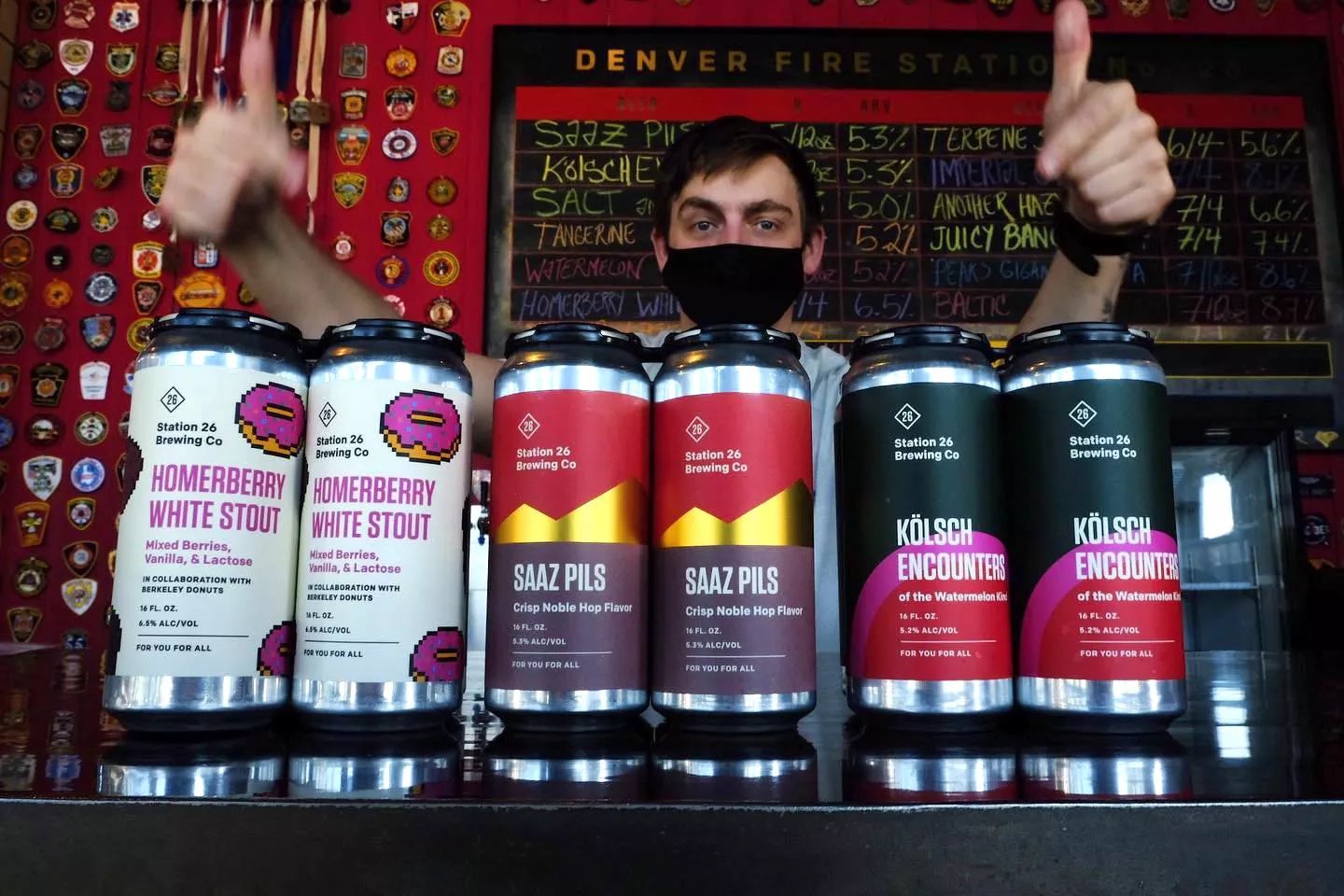
Station 26 Brewing

Audio By Carbonatix
It was April 2020, and Justin Baccary, the owner of Station 26 Brewing, was prepared for a bloodbath. Like many other states, Colorado had forced its bars, breweries and restaurants to close in March to try and stem the rising rate of COVID-19 infections, and it was becoming clear to Baccary and others that what had once looked like a three-to-six-month nightmare was turning into an indefinite hellscape for businesses of all kinds.
The Brewers Association trade group had just released the results of a sobering survey: Nearly 12 percent of independent breweries nationwide said they would have to close by the end of the month if social distancing restrictions weren’t lifted. Nearly 60 percent said they would be out of business by July. That would have translated to a stunning 4,500 breweries across the country and 250 beer makers in Colorado.
“There was a lot of fear in the early days that everyone was going to close,” says Baccary, a Colorado Brewers Guild boardmember who opened Station 26 in 2014 in a former fire station in northwest Park Hill.
But then a few things happened to change that fate. For starters, Baccary says, the federal government’s two rounds of pandemic-induced Paycheck Protection Program funding helped them survive and retain their employees. State and local governments also stepped in with everything from financial aid to temporary liquor law changes that allowed breweries to deliver beer directly to customers, offer curbside service and expand their outdoor seating so that more people could drink on site while remaining six feet apart.
The PPP allowed many breweries to get through the winter and “pivot into the wholesale space,” and although Station 26 already had a sophisticated distribution channel, “cans were our lifeline,” Baccary adds.
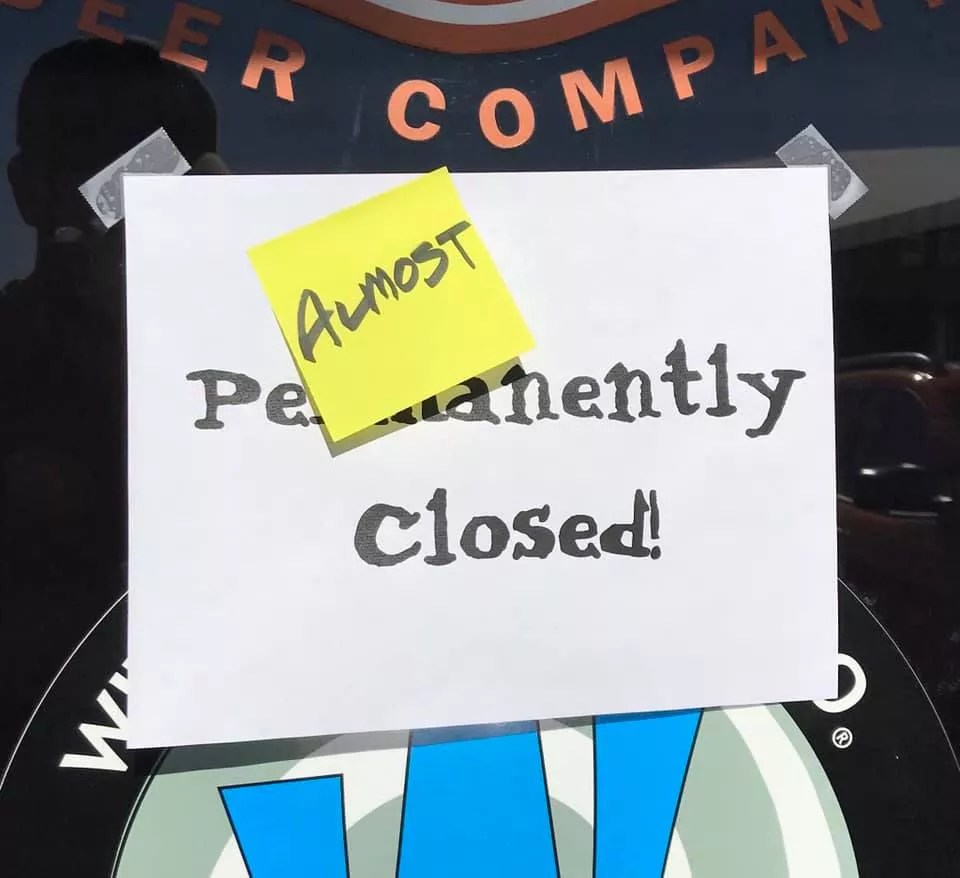
Courtesy of Strange Craft Beer Co.
Craft-beer drinkers also turned out in droves, buying beer to go, gift cards and merchandise, and leaving huge tips for hourly employees who no longer had packed houses to serve beer to. Many landlords and lenders also eased or waived their own demands, knowing that the alternative was to lose paying tenants permanently.
And finally, the breweries themselves changed their own business models – overnight in many cases – turning bartenders and brewers into packaging technicians, delivery drivers or liquor store salespeople; abandoning draft and keg sales for canned beer; adding new e-commerce and videoconferencing platforms; expanding patios or to-go windows; retraining staff to do table service; and offering more food options.
The results so far? Only a handful of breweries closed in Colorado over the past twelve months, and some of those were replaced by new breweries in the same location, while nearly two dozen breweries have opened second locations or made plans to do so. Now, as we head into what will likely be a busy warm season – with a quarter of the state vaccinated – many of these breweries have learned new tricks, invested in expanded spaces or more useful equipment, committed themselves to aggressive projects or become more efficient.
Not only that, but legislators are currently debating whether to permanently change some laws – like allowing delivery – to give breweries better access to customers.
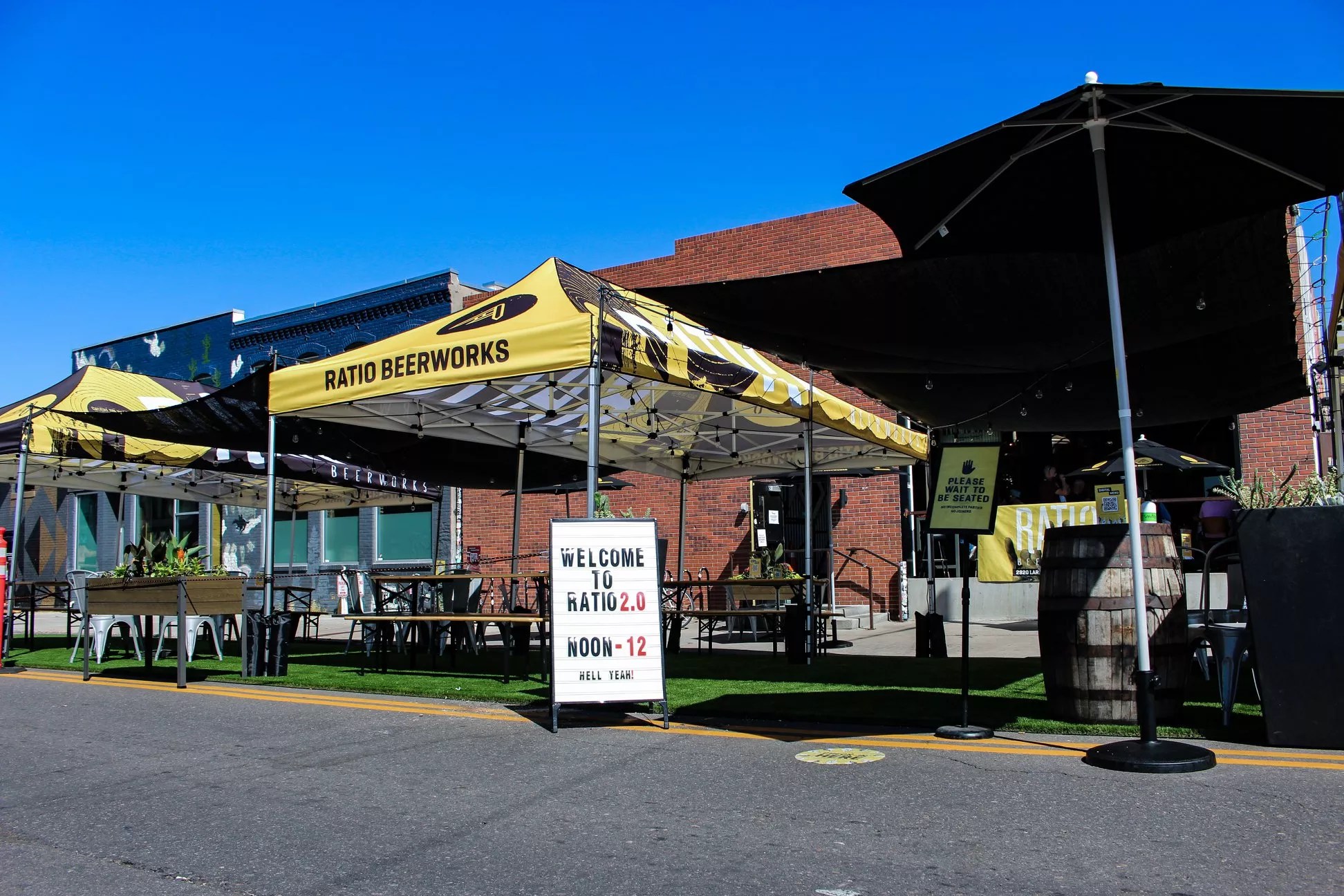
Ratio Beerworks
It prompts the questions: Did the pandemic somehow help Colorado’s craft-beer industry because businesses had to make hard choices that could benefit them long-term; and are breweries stronger now than they were in 2019?
The short answer, Baccary says, is no. “That’s not really what’s happening.”
Despite the very low closure rate in Colorado and nationwide – only 4 percent of U.S. breweries shut their doors in 2020, the same as in 2019, according to the Brewers Association – and multiple expansions on the horizon in Colorado, craft breweries are still in the process of digging themselves out of a hole, he believes. Like a lot of other beer-industry people, he was shocked by how few breweries closed. “But most breweries are very small businesses, and we run slim margins to begin with, so there’s not a lot of fat to cut.”
And despite there being a record number of breweries in the United States – more than 8,700 currently – they made 9 percent less beer in 2020 (23.1 million barrels) than in 2019, the first volume decline since the early 1980s. Total sales plummeted by a whopping 22 percent, to $22.2 billion, according to the BA.
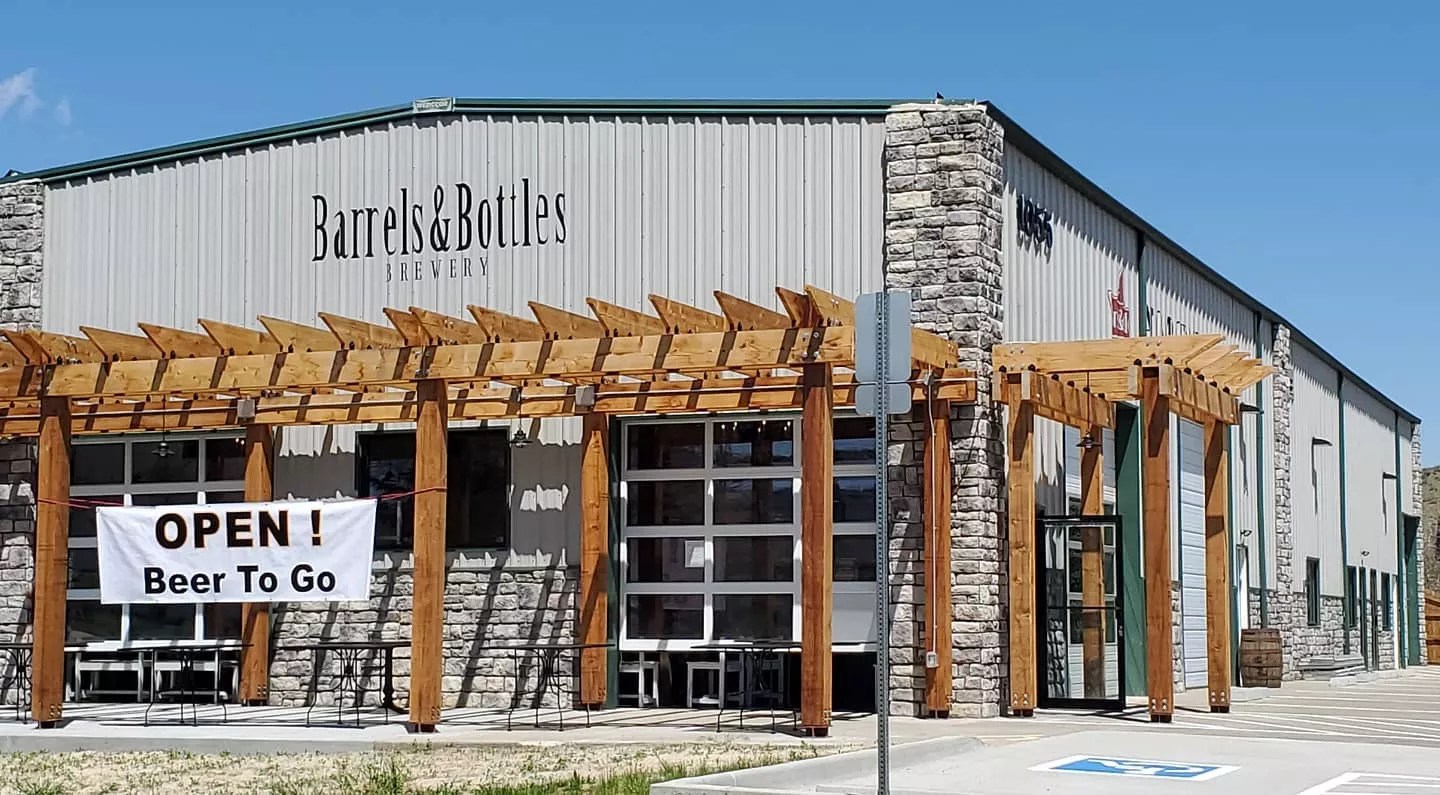
Barrels & Bottles Brewery opened its second location during lockdown – for to-go sales only.
Barrels & Bottles Brewery
Abby George, the co-owner of Golden’s Barrels & Bottles Brewery, says it may take a year or two before the effects of the pandemic are fully known. “There are ten to fifteen breweries in Colorado that are for sale right now. … The rest of us are all working on ways to reinvent ourselves so we don’t get caught behind the curve,” she notes.
George and her husband, Zach, opened a second Barrels & Bottles brewpub last April, during the worst of the lockdown, but that was because the new location had been in the works for a year already. “We needed that space,” she says. “But we would not have taken the risk if the pandemic had hit while we were in the planning stages.”
She credits government assistance, flexible landlords and creative “pivots” by breweries for helping many get through to now, when “there is light at the end of the tunnel.” But George, who also serves on the board of the Guild, is concerned for smaller breweries that weren’t able to package and distribute their beer during the shutdowns and keep revenue coming in. “I’m hoping distribution isn’t the final answer for them.”
Still, like the exploding fields of tulips and crabapple blossoms that are overtaking Denver right now, there are signs that the state’s brewing industry is coming back stronger than before.
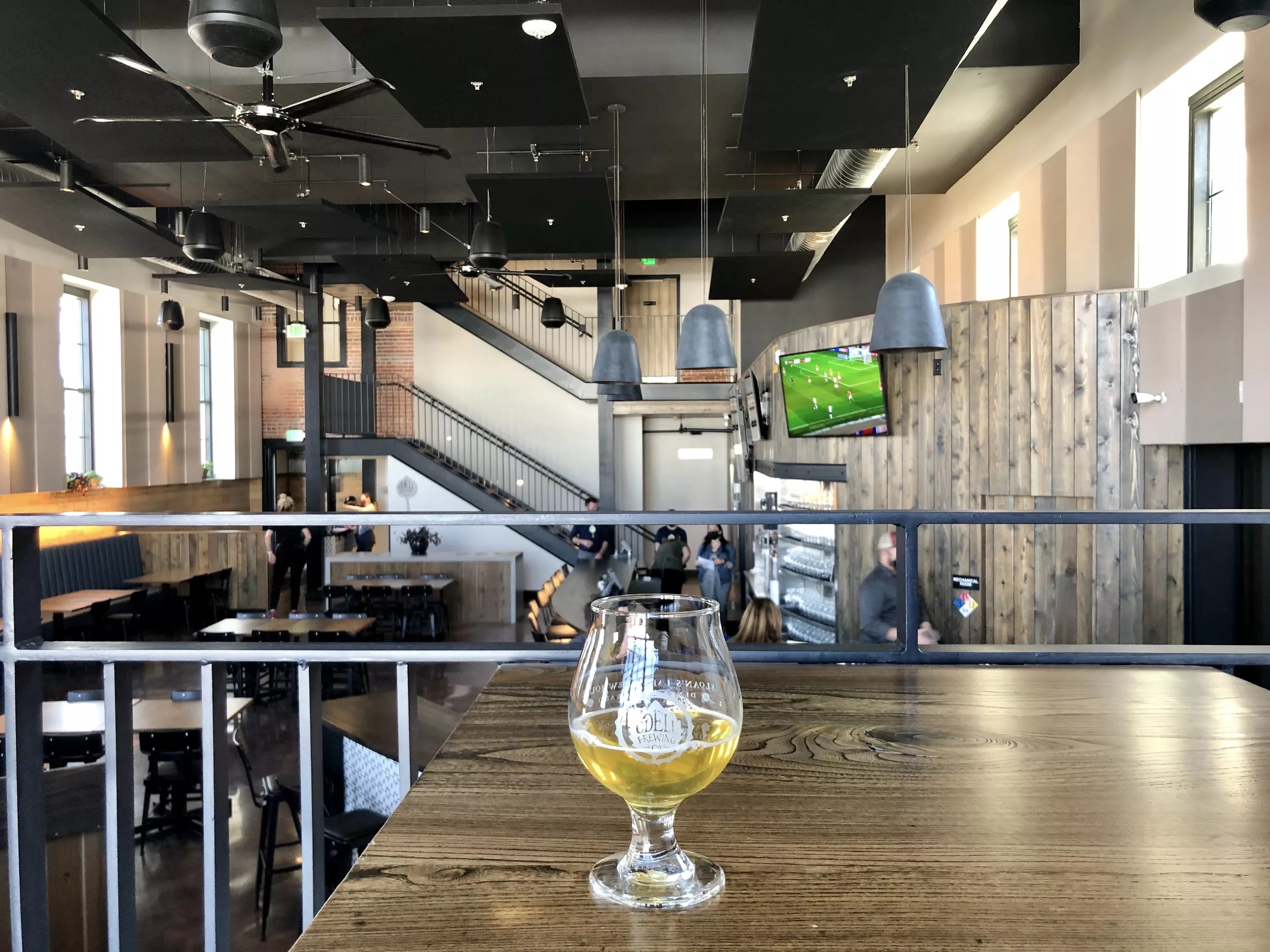
Jonathan Shikes
Odell Brewing and Denver Beer Co. each opened their second Denver locations within the past few weeks, and both are expected to be busy. Several more breweries have also opened or announced plans for additional locations in Colorado, including Left Hand, Zuni Street, Paradox, Telluride Brewing, Broken Compass, Red Leg Brewing, Westbound & Down, WeldWerks and the Post Brewing Company.
Ratio is actually one of several breweries taking over spaces that had been previously occupied by their colleagues; Ratio will make its second home in the former Declaration Brewing space. Some others include Six Capital Brewing (replacing Peak to Peak in Aurora); Jade Mountain Brewing (moving in the old Pilothouse brewery in Aurora); and Wah Gwaan Brewing (in the former Next Stop Brewing taproom).
Many more have expanded or are planning major brewhouse expansions (including Wiley Roots, Living the Dream, Eddyline and Bootstrap) or adding to their patios or inside spaces (Strange Craft, Copper Kettle, Sanitas, Bierstadt, Woods Boss, Outer Range, Grandma’s House). Still more have added or plan to add new canning lines (Ratio, Cerebral, Mockery, Goldspot, Seedstock, Bierstadt, Call to Arms).
Beyond that, brewery owners have learned some less obvious lessons that may help succeed moving into 2022 and beyond. “We earned a lot through COVID, and the brewery has flourished,” says Zuni Street brewing owner Willy Truettner, who is opening a second location in Crested Butte later this year.
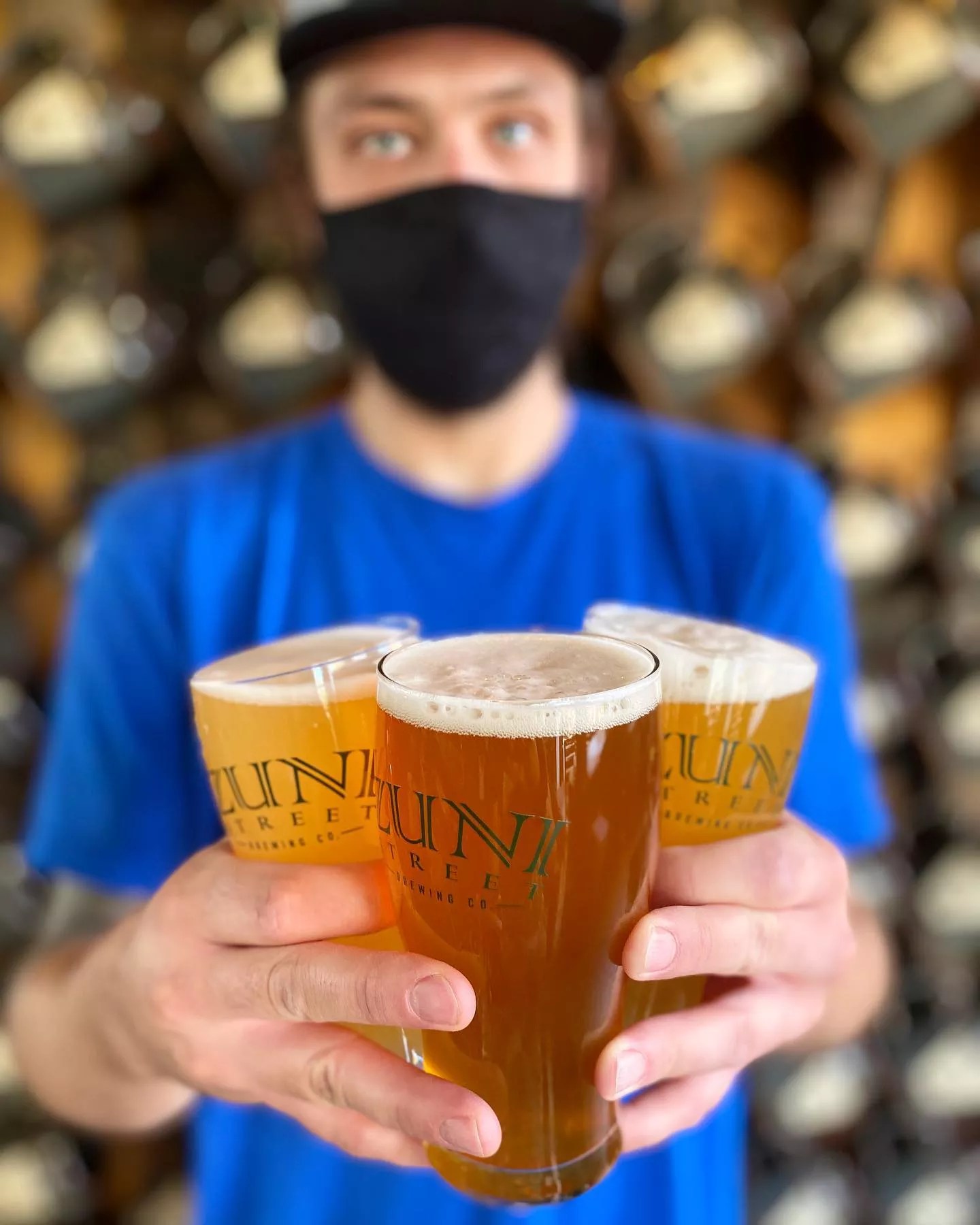
Zuni Street Brewing
For instance, before COVID, customers at Zuni Street ordered beer at the bar, but that resulted in long lines during busy times – and the chance that customers would order less or move on to the next brewery down the street. With social distancing and capacity limits in place, however, Zuni Street switched to table service. “We had to hire a few more people to bring the beer to you, but it boosted sales astronomically,” he says.
Strange Craft Beer Company owner Tim Myers, who sounded the alarm early and often on possible brewery closures, credits craft beer’s staying power to sheer resilience.
“Six months ago, I would have thought that we would see a lot more breweries disappear. Now I think we are looking forward to a return of the Roaring Twenties,” he says, echoing other brewery owners’ thoughts on the notion that people are ready to party in 2021 like they were a century ago after World War I.
“Everybody is tired of being cooped up, locked up. Anything breweries can do to be prepared for this wave of people is going to be to their benefit,” Myers adds. “As things begin to open up, anyone that survived this challenge is in for a huge reward, hopefully. I think the worst is behind us.”